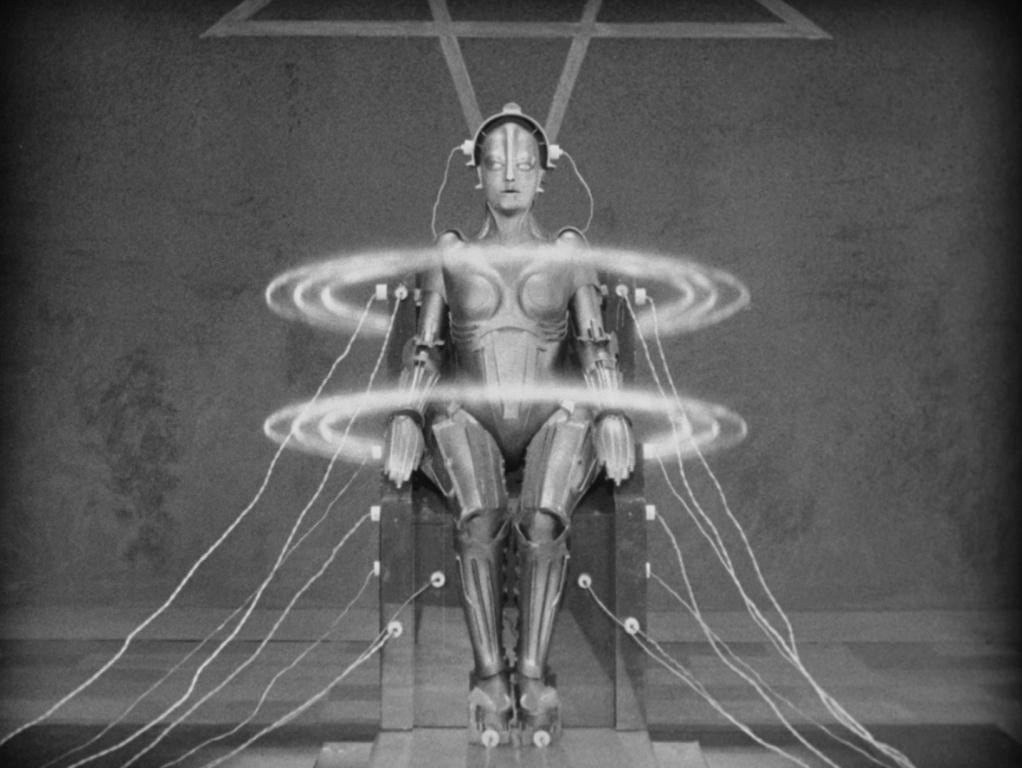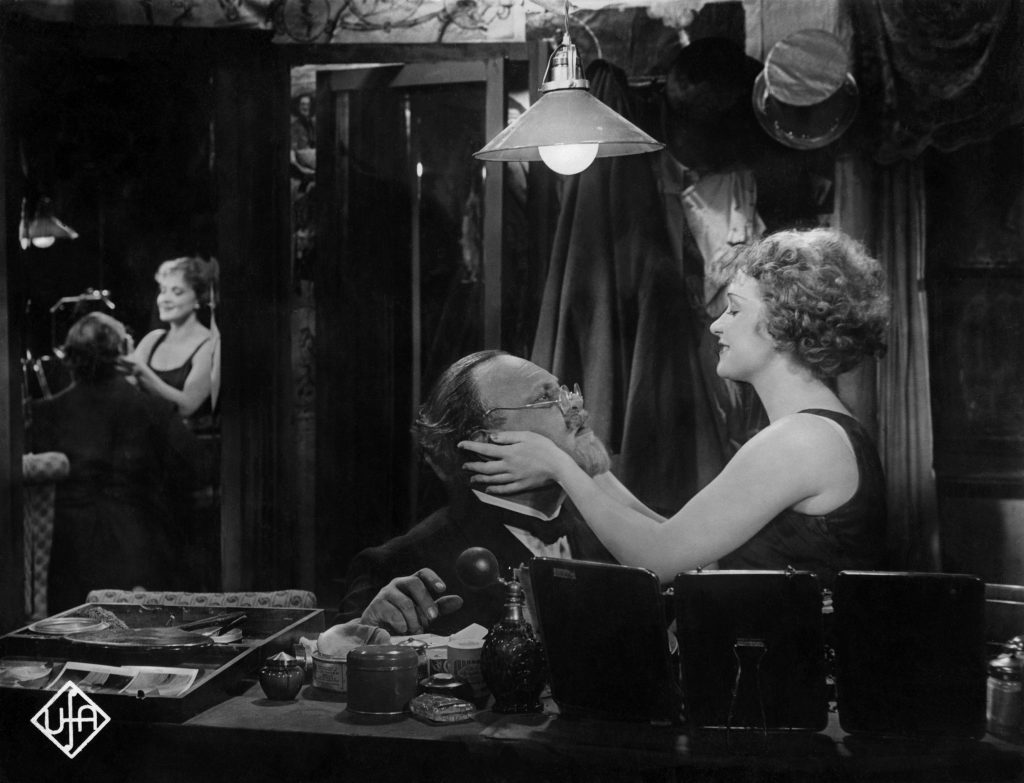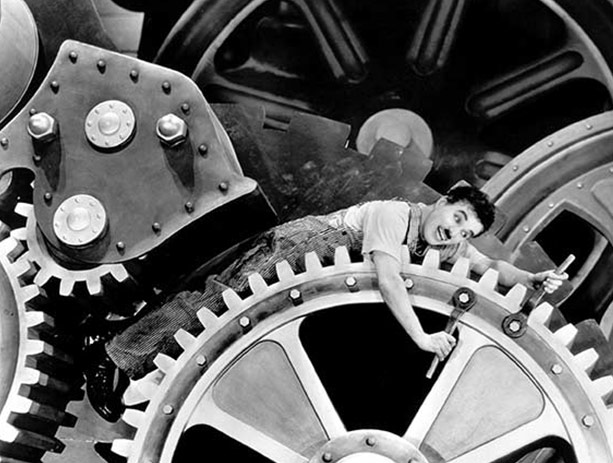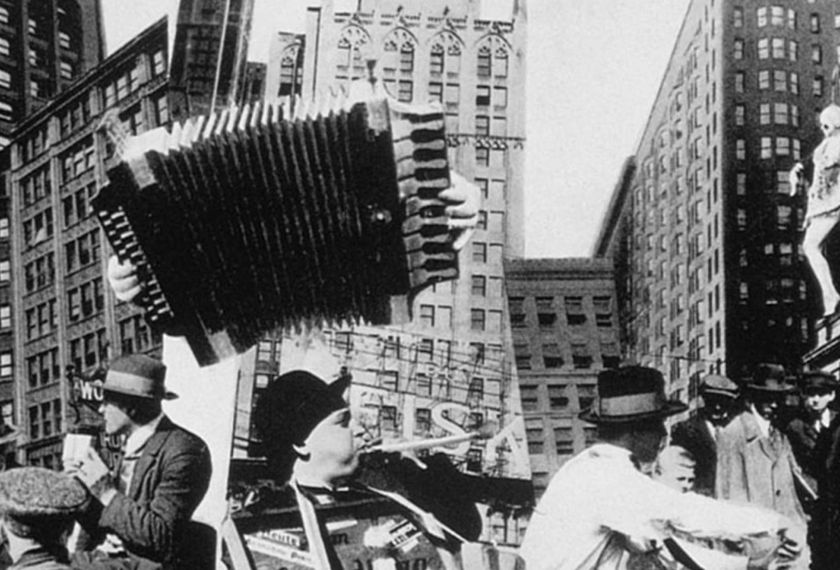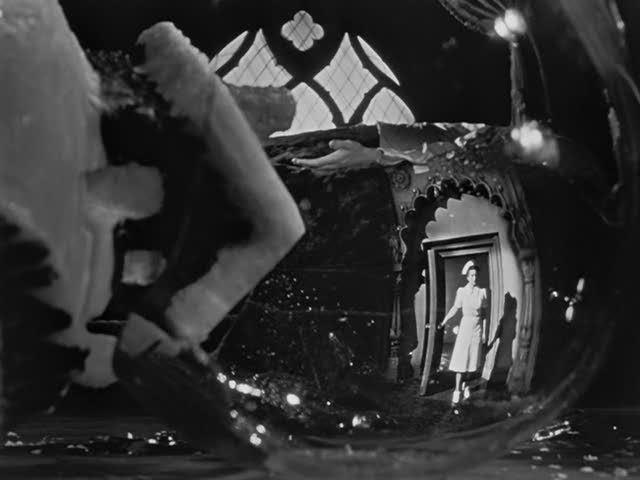Wednesday, January 18 at 7pm
METROPOLIS – Restored Version!
Directed by Fritz Lang (Germany 1927) 148 min. 35MM. Rudolf Klein-Rogge, Gustav Froelich, Alfred Abel, Brigitte Helm. With English intertitles.
Incorporating more than 25 minutes of newly discovered footage, this 2010 restoration of Metropolis is the definitive edition of Fritz Lang’s science-fiction masterpiece. Backed by a new recording of Gottfried Huppertz’s 1927 score (presented in 5.1 Stereo Surround), the film’s dazzling visual design and special effects are more striking than ever. And the integration of scenes and subplots long considered lost endows Metropolis with even greater tension and emotional resonance, as it dramatizes the conflict between wealthy über-capitalists and rebellious subterranean laborers orchestrated by a diabolical scientist capable of destroying them both.
“One of the most celebrated movies in cinema history… For the first time, Lang’s vision… which has influenced contemporary films like Blade Runner and Star Wars, seems complete.” — The New York Times
THE BLUE ANGEL
Josef von Sternberg (Germany 1930) 106 min. 35MM. With Emil Jannings, Marlene Dietrich, Hans Albers, Kurt Gerron. German with English subtitles.
This is the film that made Marlene Dietrich an international icon, with the role of Lola Lola, a performer in a cabaret dripping with atmospheric Weimar sleaze. Lola’s coarse crooning and signature costume—white top hat, black stockings, and little else—make the customers drool over their liverwurst, and reduce Emil Jannings’ prim professor to a groveling, crowing caricature of masochistic compulsion. Although the Dietrich on view here is looser and more casually funny than the carefully sculpted creature of the later films, her aura of sexual confidence was established from the start, and The Blue Angel’s wallow in erotic obsession would, rightly or not, color critical views of the entire Sternberg-Dietrich collaboration (Adapted from Pacific Film Archive notes).
MODERN TIMES
Directed by Charlie Chaplin (U.S. 1936) 87 min. 35MM. With Charlie Chaplin, Paulette Goddard.
Chaplin’s last outing as the Little Tramp puts the iconic character to work as a giddily inept factory employee who becomes smitten with a gorgeous gamine (Goddard). With its barrage of unforgettable gags and sly com- mentary on class struggle during the Great Depression, Modern Times – though made almost a decade into the talkie era and containing moments of sound – is a timeless showcase of Chaplin’s untouchable genius as a director of silent comedy.
Berlin: Symphony of a Great City
Directed by Walther Ruttman (Germany 1927) 65 min.
Walther Ruttman’s impressionistic vision of Berlin stands as one of the great “city symphonies” of the silent era. A day-to-night portrait of the city that deploys kinetic editing and a graphic mode of cinematography to capture the dynamism of the modern urban environment, the film set a lasting precedent for the representation of city life in cinema. Although the events appear to take place during a single spring day, Ruttman spent eighteen months assembling footage to produce the final film. Whether classified as a work of nonfiction or the avant-garde, Ruttman’s poetic work remains a classic of cinema (Harvard Film Archive notes).
Citizen Kane
Orson Welles (U.S. 1941) 119 min. DCP. With Orson Welles, Joseph Cotton, Dorothy Comingmore.
Following the death of a publishing tycoon, reporters scramble to discover the meaning of his final utterance. Welles and cinematographer Gregg Tolland use chiaroscuro lighting, deep-focus cinematography and a labyrinthine ashback structure to imagine the monstrous hollowness of the American dream. A modernist landmark of cinematic style and storytelling, Citizen Kane is considered by many to be the greatest film ever made.
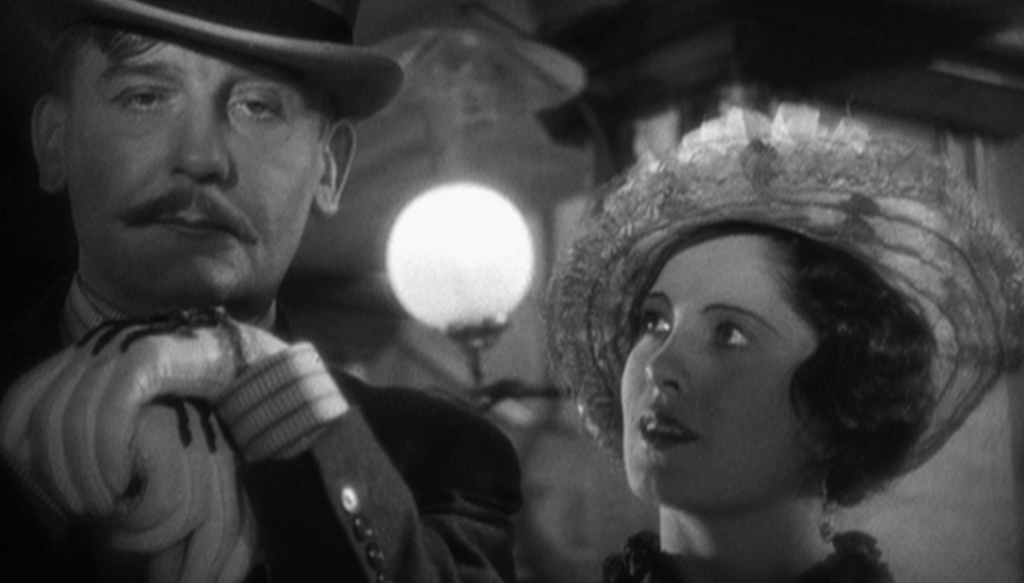 The Three Penny Opera
The Three Penny Opera
Directed by Georg Wilhelm Pabst (Germany 1931) 112 min. With Rudolf Forster, Lotte Lenya, Carola Neher. In German with English subtitles.
The sly melodies of composer Kurt Weill and the daring of dramatist Bertolt Brecht come together on-screen under the direction of German auteur G. W. Pabst (Pandora’s Box) in this classic adaptation of the Weimar-era theatrical sensation. Set in the impoverished back alleys of Victorian London, The Threepenny Opera follows underworld antihero Mackie Messer (a.k.a. Mack the Knife) as he tries to woo Polly Peachum and elude the authorities. With its palpable evocation of corruption and dread, set to Weill’s irresistible score, The Threepenny Opera remains a benchmark of early sound cinema. It is presented here in both its celebrated German and rare French versions.
TOP OF PAGE
Wednesday, April 5 at 7pm
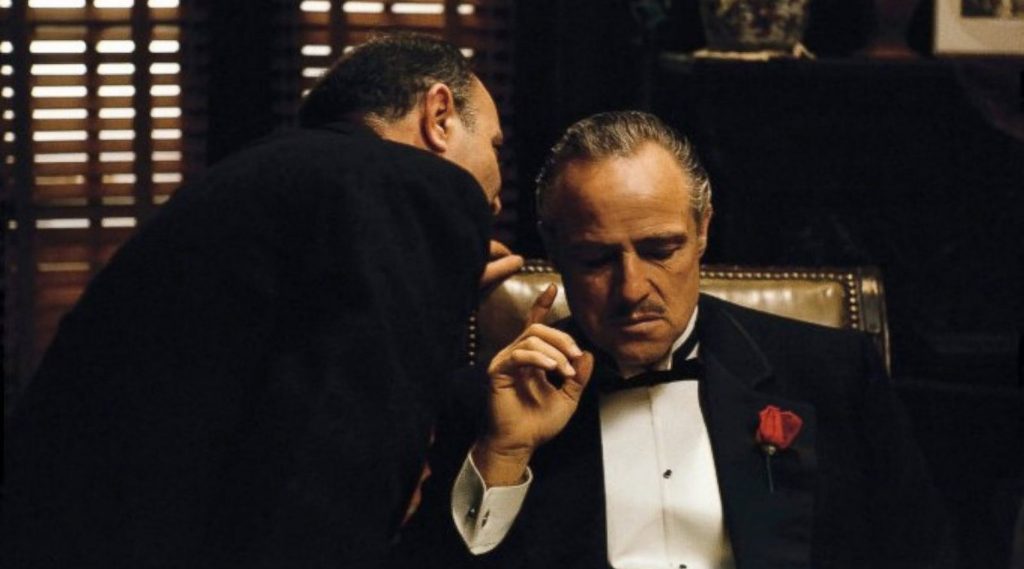 The Godfather
The Godfather
Directed by Francis Ford Coppola (1972 U.S.) 175 min. DCP. With Marlon Brando, Al Pacino, James Caan, Robert Duvall, Diane Keaton, Talia Shire.
One of the greatest gangster pictures of all time, The Godfather follows the chain of circumstances that inevitably pull war hero Michael Corelone (Pacino), the youngest son of mob boss Don Vito Corleone (Brando), into the family business. Set over the course of the decade from 1945-1955, The Godfather is epic in scope yet surprisingly intimate in execution – thanks largely to a close, dark style created by director Coppola and legendary cinematographer Gordon Willis.
Wednesday, April 11 at 7pm
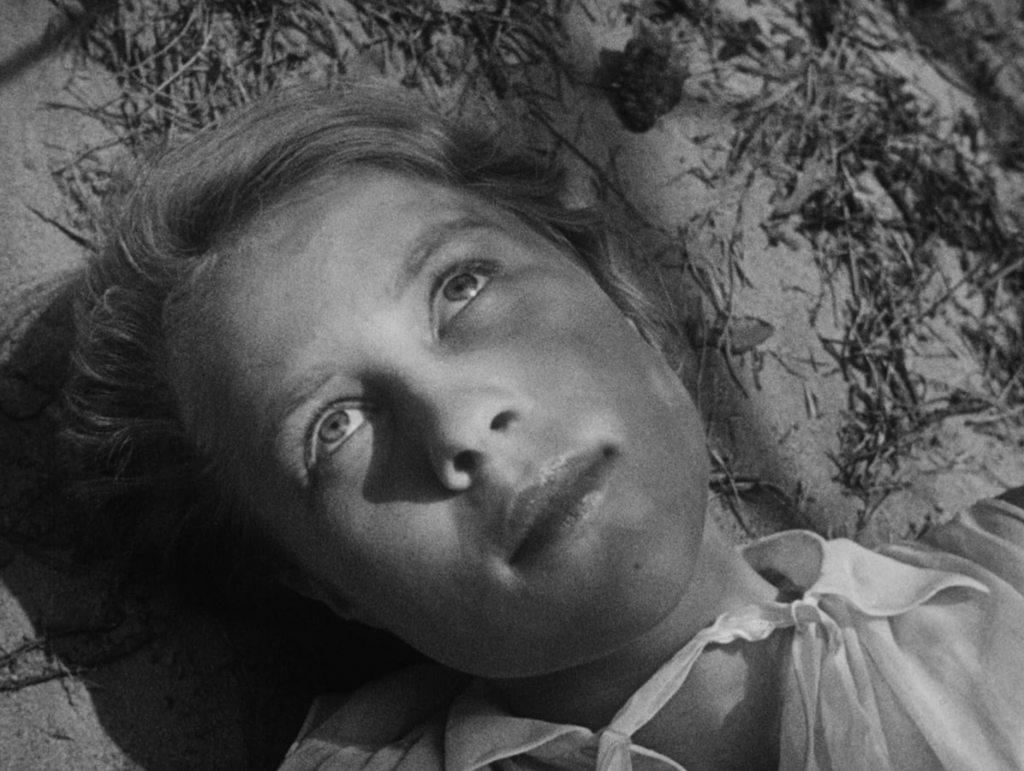 People on Sunday
People on Sunday
Directed by Robert Siodmak (Germany 1930) 73 min.
Years before they became major players in Hollywood, a group of young German filmmakers—including eventual noir masters Robert Siodmak and Edgar G. Ulmer and future Oscar winners Billy Wilder and Fred Zinnemann—worked together on the once-in-a-lifetime collaboration People on Sunday (Menschen am Sonntag). This effervescent, sunlit silent, about a handful of city dwellers (a charming cast of nonprofessionals) enjoying a weekend outing, offers a rare glimpse of Weimar-era Berlin. A unique hybrid of documentary and fictional storytelling, People on Sunday was both an experiment and a mainstream hit that would influence generations of film artists around the world.
Wednesday, April 26 at 7pm
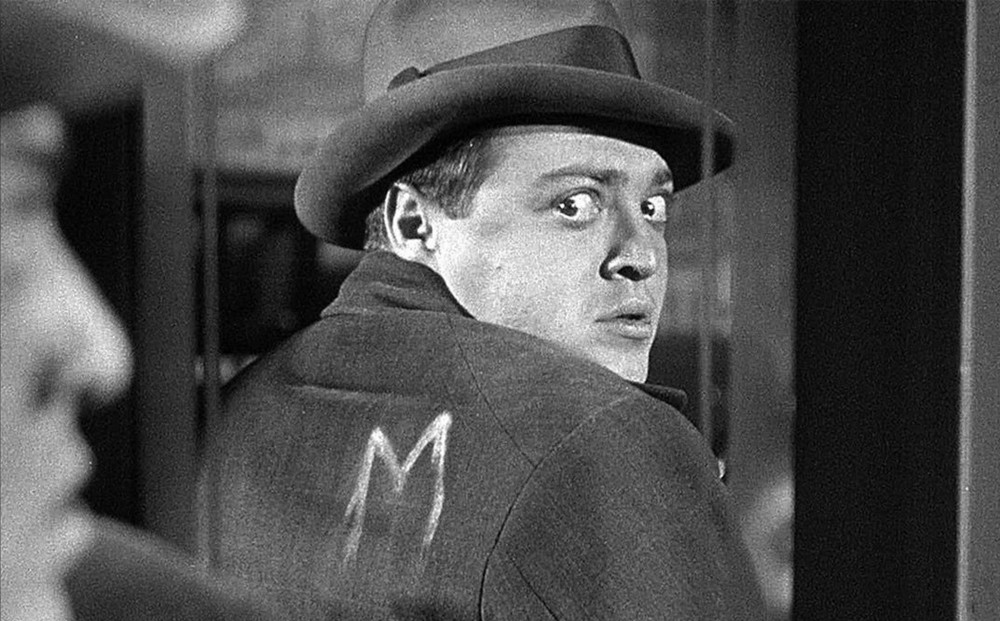 M
M
Directed by Fritz Lang (Germany 1931) 110 min. 35MM. With Peter Lorre, Ellen Windmann, Inge Landgut. German with English subtitles.
A simple, haunting musical phrase whistled offscreen tells us that a young girl will be killed. “Who Is the Murderer?” pleads a nearby placard as serial killer Hans Beckert (Lorre) closes in on little Elsie Beckmann . . . In his harrowing masterwork M, Fritz Lang merges trenchant social commentary with chilling suspense, creating a panorama of private madness and public hysteria that to this day remains the blueprint for the psychological thriller.
“M seems every bit a more substantial and technically complex work than Lang’s previous landmark, 1927’s Metropolis… as perfect an example of pure cinema in the sound era as one is likely to find.” – Chris Cabin, Slant
